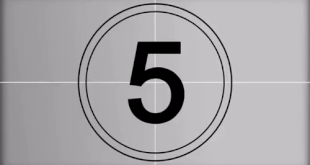Music and Literature
By: Eric Guo
“Music expresses that which cannot be put into words and that which cannot remain silent” – Victor Hugo
Music and literature are actually very similar to each other. Although they target different human senses (music targets our hearing and literature targets our sight), both are art forms we have developed across different civilizations over the ages and still cherish today. More significantly, music and literature are ways of expressing and sharing ideas, one through sounds and the other through words. Through the music of a certain composer and the novels of a certain author, the listener and the reader are able to gain vicarious pleasure or pain, learn about historical events through a different medium, or even empathize with the thoughts and ideas of the artist. However, though music and literature share many similarities and are both important mediums for the expression of ideas, there are unique qualities of both music and literature that make them very different. Music can do things that literature can’t, and literature can do things that music can’t. As renowned French novelist Victor Hugo said: “Music expresses that which cannot be put into words and that which cannot remain silent”. Combined, both music and literature enrich our world deeply.
To begin, let us examine the purpose of literature. Ever since the advent of writing, literature has been used for all sorts of different purposes, including religion, societal problems, and a historical record. During ancient times, most significant texts were for mythological reasons. Ancient epics such as the Epic of Gilgamesh and Homer’s Odyssey detail the perilous journeys of the mythical figures Gilgamesh and Odysseus, all for the purpose of exploring fundamental qualities of human nature, such as devotion to gods, love, and strength. These epics do more than simply than tell stories; they explore the depths of human nature and continue to shape our views of the world to this day. However, these works of literature were also used to establish a relationship between the gods and the earth. The Epic of Gilgamesh involves many gods who fight against the hero Gilgamesh, maintaining the idea that gods are dangerous. However, in the Odyssey, gods are regarded as more important, trustworthy figures who must be appeased by mortals. There are gods that try to deceive Odysseus on his journey home, but there are also gods who try to help Odysseus on his journey home, which reflect the dominant roles that gods played in the lives of ancient Greeks.
Literature was not the only method of expressing religious beliefs in ancient times, however. Music played a huge role in rituals and ceremonies all over the world, from ancient China to Greece to the Americas. However, it was for a different purpose. It wasn’t to explore human nature through an epic or to question prevailing views at the time. It was to give a sense of enjoyment to life, and to appease ancient gods. But this form of music was limited in its number of possibilities, as the amount of notes that could be produced was much more limited than it is today. The furthest music went during ancient times was the development of the pentatonic scale in East Asia, allowing more notes and greater possibilities.
Possibly the greatest influence of literature and music on today’s world is that of Europe during the seventeenth century and beyond. This was really when the classics that we think of today took off. Books such as Pride and Prejudice and The Scarlet Letter explore societal issues that authors Jane Austen and Nathaniel Hawthorne found important to for others to understand. These books explore a certain societal trend at a given place and given time, and although they are specific, they are highly innovative and rich novels that provide readers with an understanding of when, where, and why the author wrote the novel. This is a form of expression at its finest. Austen explores ideas such as love and social class in nineteenth century England, while Hawthorne criticizes the values of the Puritans in seventeenth century. Both novels provide extraordinary ways of informing people about a certain historical trend while adding in their own judgement.
The greatest influence on the music we have today is the development of classical music beginning in the late sixteenth, early seventeenth centuries with major composers such as Johann Sebastian Bach. This provides the basis of the music we have today: the 24 different keys, the 12 different notes of an octave, and the combination of notes that had not been seen before. The early seventeenth century to the late twentieth century makes up the repertoire of classical music. While focusing on solely classical music is a eurocentric thing to do, there is no doubt that classical music continues to have a significant impact on today’s music. What’s important about classical music is that it allows not only composers to express their ideas, but also the interpreter to add in their own views.
It may seem odd that music is able to express as much ideas as literature without any words, but ultimately, it is the two methods of expression that allow us to creatively flourish.
 Tempus Magazine By Students, For Students
Tempus Magazine By Students, For Students 


